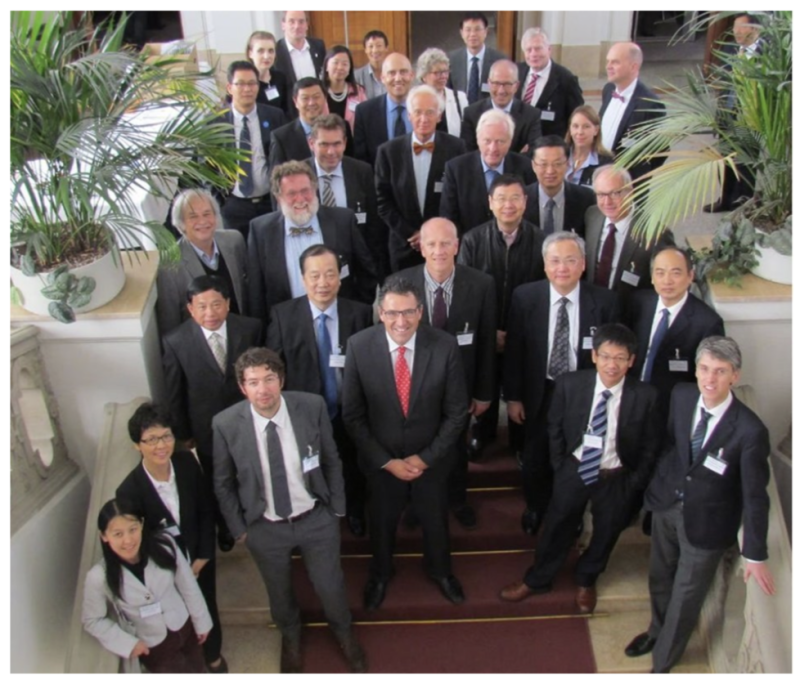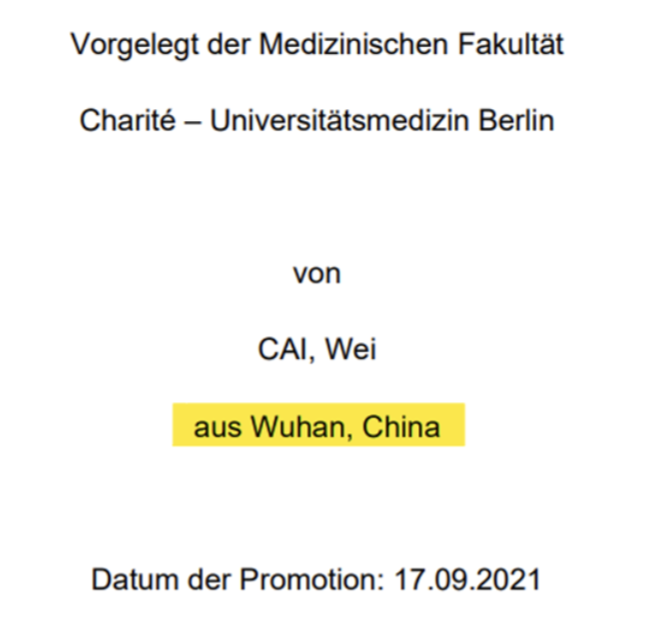The Hidden RKI File
by Robert Kogon at Brownstone Institute

When the leaked “RKI Files” were unveiled at a July 23rd press conference in Berlin, Aya Velazquez, who served as the conduit for the leak, proudly declared that the documents constituted the complete unredacted minutes of the RKI’s Covid-19 “Crisis Group.” The minutes had previously been released by the German public health authority, the Robert Koch Institute, in redacted form.
However, critical German-speaking observers quickly noted that the “Aya” files were not in fact identical to the officially released versions – thus, at the same time, raising questions about the authenticity of the leak. Entire passages from the official versions were missing from the “Aya” versions.
But, somewhat astonishingly, what appears to have gone unnoticed is that not only passages, but indeed the entire record of the minutes of one meeting was missing from the “Aya” leak – and not the minutes of just any meeting, but indeed the minutes of none other than the very first meeting of the Crisis Group included in the official release!
As can be verified here on the dedicated website that was created for the leak, the minutes that Aya Velazquez posted as PDFs in a Zip-folder titled “Minutes_all” (Protokolle_gesamt) begin on 16 January. As can be confirmed here, however, the official minutes begin on 14 January. So, the “Minutes_all” folder does not in fact contain all the minutes!
Where are the missing minutes?
Well, when the discrepancies between the official versions and her versions were first pointed out, Aya Velazquez responded by saying that she had in fact assembled the posted PDFs herself from Word documents that her source provided, sometimes in multiple versions. While Velazquez (the name is a pseudonym) presently describes herself as a journalist, her self-avowed occupation until quite recently (see her article here, for instance) was a prostitute. She gained notoriety, while precisely still practicing said profession, as an anti-Covid-measure activist and her notoriety has increased as a commentator on X.
After responding to the critics, she proceeded also to post the Word doc “source files” on the dedicated website for the leak. It should be noted that, as of this writing, these source files are not easily accessible, and attempts to open them in Word give rise to error messages such as the one below.

However, per the file name (see above), the earliest minutes contained in the source doc folder are likewise those of 16 January 2020.
So, the source file folder does not contain the missing minutes either. Where are the minutes of the Crisis Group’s 14 January meeting?
Thankfully, a Google search using text from the official version turns them up: namely, in “supplementary material” (Zusatzmaterial), which was likewise posted on the dedicated website – and which, in this author’s experience, can also be very difficult (although not impossible) to access from the site.
The document is very revealing indeed. What it shows is that the Robert Koch Institute had a direct and highly relevant link to Wuhan right from the start of the Covid-19 “crisis,” since an RKI staff member was not only from Wuhan but indeed a specialist in respiratory illnesses!
Many observers of the “RKI Files” saga – especially those who do not read German and who have not been able to follow its unfolding in real time – will be under the impression that the previously published official versions were heavily redacted. This is not true. While the first versions of the documents obtained by the journalist Paul Schreyer in response to an FOI request were more heavily redacted, very few redactions, apart from redactions of names, remained in the versions published on the RKI website in late May. Longer redactions, i.e. of textual passages, are few and far between in the official documents.
Apart from the names – and, as so happens, that of one Christian Drosten figures prominently and often – the entire interest of the “Aya” leak was thus to discover what was hidden beneath these last remaining textual redactions.
The 14 January minutes contain one such redaction, as can be seen below from the official release.

The passage reads: “…and regularly reads the texts published in China in Mandarin and shares the information.” The file included in the “supplementary material” – but for some reason not included by Aya Velazquez in the ostensibly “complete” minutes – reveals what was under this redaction, as can be seen below.

The full sentence reads (my emphasis): “A [female] colleague in FG36 comes from Wuhan and regularly reads the texts published in China in Mandarin and shares the information.” FG36 is the institute’s “Respiratory Infections” Unit.
Why was this information redacted in the official release? Note that the redacted passage does not contain the staff member’s name.
Is it because this incredible coincidence might have called attention to the many and intimate German links to the virology scene in Wuhan, which I have documented, among other places, in my “The Greatest Story Never Told”? These links, as I have shown, include a decade-long publicly-funded research partnership and a full-fledged German-Chinese lab right in the city.
Indeed, as I have shown in my “The Smoking Gun in Wuhan”, Germany was even funding a research project at none other than the Wuhan Institute of Virology, which involved genetic engineering and precisely those parts of the Human Immunodeficiency Virus that would turn up as the mysterious “HIV inserts” in SARS-CoV-2. Is it because the coincidence, given these links, is not in fact a coincidence?
Why, above all, was this document not included in Aya Velazquez’s “complete” unredacted minutes? Does this suggest a certain deference – whether on the part of the source or recipient of the leak – to the wishes of the RKI not to call attention to the Berlin-Wuhan axis?
The fact that the leak does not include the minutes of three meetings that are also missing from the official release already raised some eyebrows among German-speaking observers and could likewise be construed as a sign of deference. These minutes (those of 6 and 8 January and 9 May 2020) are not even to be found in the “supplementary material.”
The below group photo from a 2015 “Sino-German Symposium on Infectious Diseases” in Berlin provides a graphic illustration of the closeness of the ties between German and Chinese virology circles.

Christian Drosten, chair of the virology department at Berlin’s Charité University Hospital and designer of the “gold standard” SARS-CoV-2 PCR test, can be seen in the lower left-hand corner standing next to none other the Shi Zhengli, the Wuhan Institute of Virology’s world-renowned bat coronavirus specialist. The buck-toothed Chinese man with the glasses in the lower right is the then Director of the WIV, Chen Xinwen. The woman with the long hair to Shi’s right appears to be Wang Yanyi, the current Director of the WIV. (For more on the picture and symposium attendees, see here.)
The former president of the Robert Koch Institute, Reinhard Burger, was also in attendance. He is the white-haired man with a blue shirt near the middle of the group.
The picture was taken at the Kaiserin Friedrich Foundation at 7 Robert Koch Square (sic!), just around the corner from the building that houses Drosten’s virology department on the Charité University Hospital campus. The Robert Koch Institute is about a fifteen-minute drive from the campus. The RKI staff member from Wuhan, incidentally, is presumably Wei Cai, who completed a doctorate in Medicine at the Charité University Hospital in September 2021. See her dissertation here and the extract from the title page below.

The Hidden RKI File
by Robert Kogon at Brownstone Institute – Daily Economics, Policy, Public Health, Society
Disclaimer
Some of the posts we share are controversial and we do not necessarily agree with them in the whole extend. Sometimes we agree with the content or part of it but we do not agree with the narration or language. Nevertheless we find them somehow interesting, valuable and/or informative or we share them, because we strongly believe in freedom of speech, free press and journalism. We strongly encourage you to have a critical approach to all the content, do your own research and analysis to build your own opinion.
We would be glad to have your feedback.
Source: Brownstone Institute Read the original article here: https://brownstone.org/

